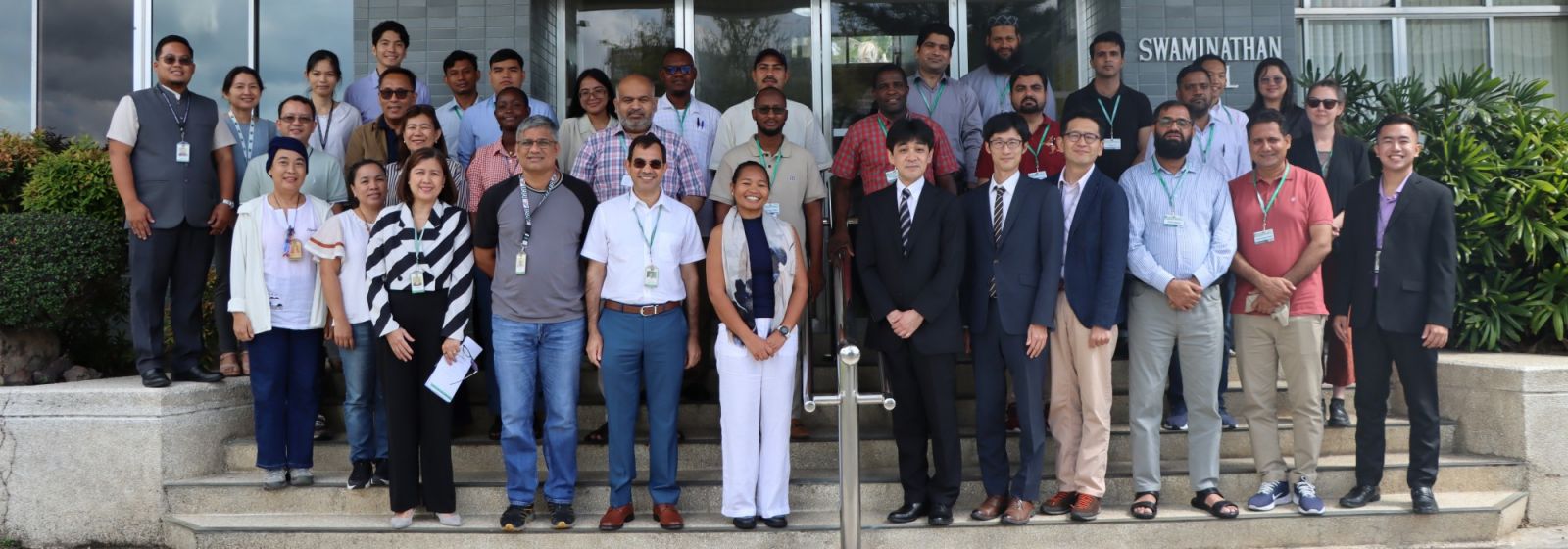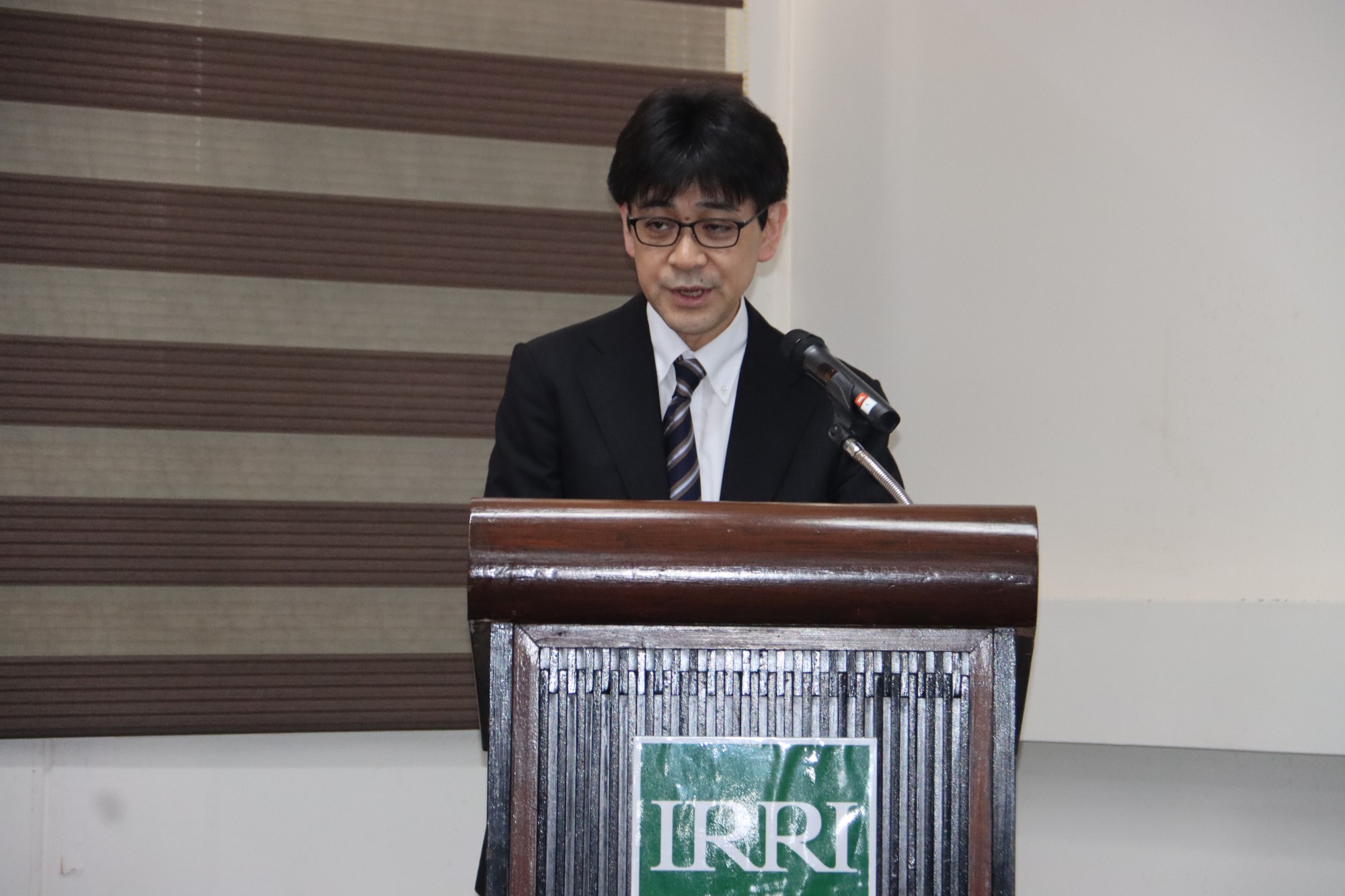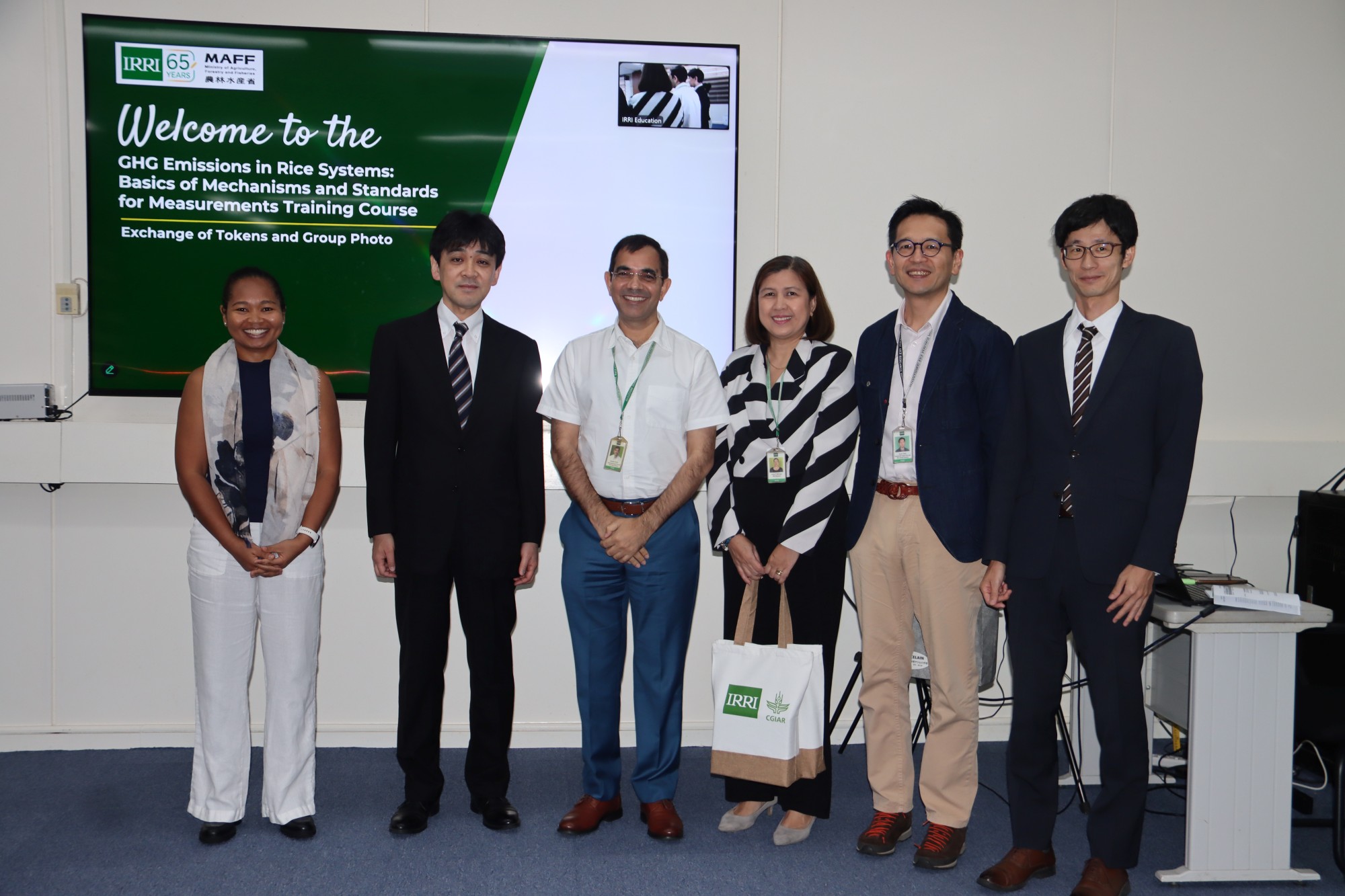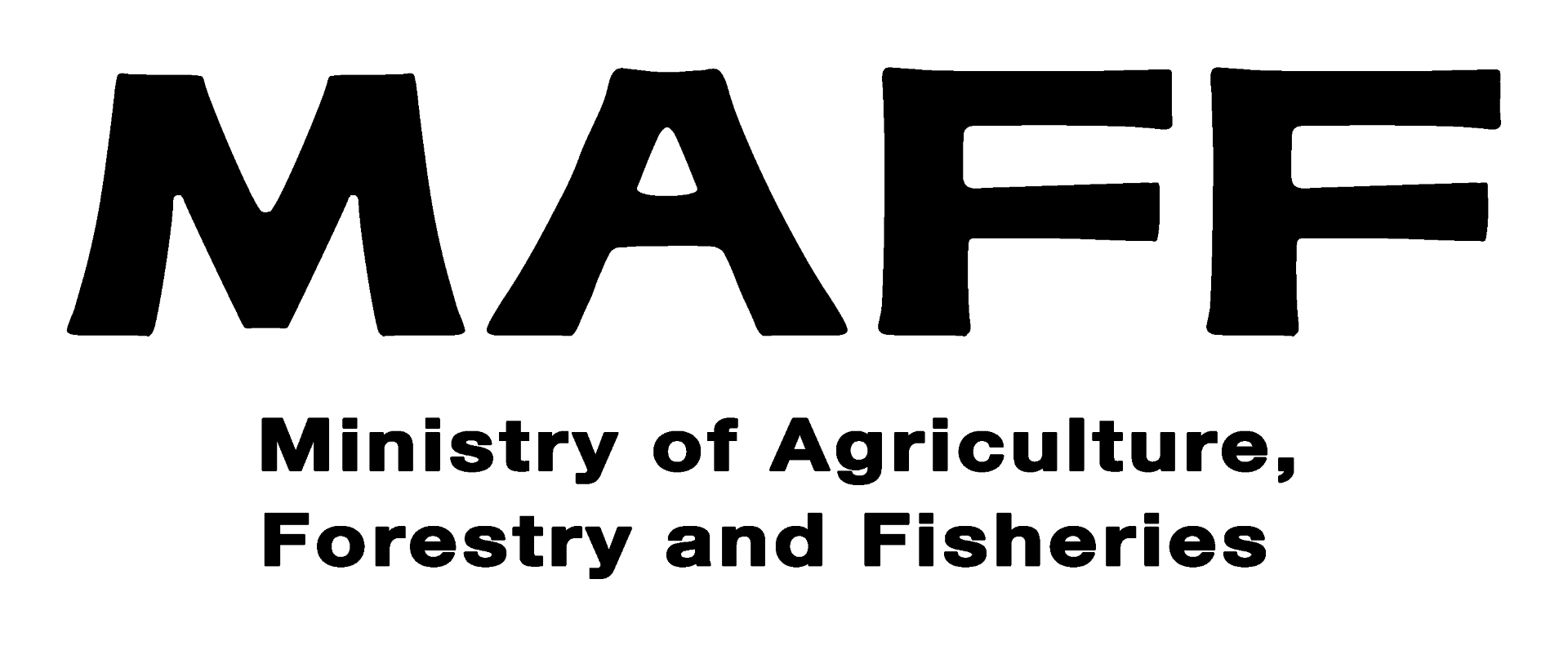Japan and IRRI's AGRI aims to reduce GHG emissions via CapDev and infrastructure improvements

Los Baños, Philippines (19 May 2025) — The Ministry of Agriculture, Forestry and Fisheries (MAFF) of Japan and the International Rice Research Institute (IRRI) officially launched a new initiative that aims to promote sustainable, low-carbon rice-farming in the ASEAN region. Called “Accelerating development and scaling of agricultural innovations for reducing greenhouse gas (GHG) emissions in ASEAN Countries” project (AGRI Project), the initiative will focus on capacity building for partners, and infrastructure development to improve IRRI’s soil laboratory and upgrade its equipment for better efficiency.
Rice production accounts for 48% of cropland methane emissions and 11% of total agricultural GHG emissions worldwide. “There is huge potential to mitigate the impacts of climate change in rice production. The AGRI Project was conceptualized to contribute to development and scaling of agricultural innovations that can reduce emissions while maintaining productivity,” said Dr. Virender Kumar, IRRI Sustainable Impact through Rice-based Systems Department Research Director in his opening remarks during the Kickoff Program.
The AGRI Project will conduct trainings to build the capacity of researchers and partners in advanced GHG measurement techniques, data analytics, and measurement services. These include the “Training on GHG Emissions in Rice Systems: Basics of Mechanisms and Standards for Measurements,” which was held immediately following the AGRI project’s Kickoff Program.
Through the AGRI project, IRRI’s soil laboratory will also be upgraded. State-of-the-art equipment including additional units of Gas Chromatography (GC) will be purchased. The GC will enable accurate measurement of GHG emissions.
“It is inspiring to witness such a dedicated gathering of colleagues, partners, and experts committed to advancing climate-resilient agriculture and sustainable rice farming systems across ASEAN,” said Dr. Anilyn Maningas, IRRI Education Head.
Mr. Seisuke Inoue, MAFF Japan Director of International Research Collaboration Division, emphasized the urgent need for collective action. “Building on the success of the ongoing MAFF Japan-IRRI Project on “Development of Rice Cropping Systems Toward Carbon Neutrality and Food Security in ASEAN Countries” last year, MAFF-Japan is funding a complementary project, the AGRI Project, which aims to establish the necessary research infrastructure and training systems,” he noted. Both projects will contribute to the ASEAN-CGIAR Innovate for Food Regional Program Intervention Package 2: Carbon Neutrality and Circular Agriculture.

Dr. Kazuki Saito, IRRI Senior Scientist and AGRI Project Lead, provided an overview of the project's objectives and implementation plan. “Through capacity building, infrastructure development, and regional collaboration, we aim to generate reliable emission data and develop innovative practices that can be scaled regionally, contributing to climate change mitigation and food security,” he stated.
Mr. Kenta Matsumoto, the Section Chief of International Strategy Division at MAFF Japan, explained how the Joint Crediting Mechanism (JCM) helps reduce greenhouse gas (GHG) emissions through sustainable farming practices like Alternate Wetting and Drying (AWD). The JCM creates a way to measure, verify, and certify GHG reductions. AWD effectively lowers methane emissions from rice farming. By using AWD in JCM projects, countries can earn JCM carbon credits, called Internationally Transferred Mitigation Outcomes (ITMOs), which help meet GHG reduction targets outlined in national commitments under the Paris Agreement. The potential economic benefits of JCM credits from AWD are significant for Asian countries. These AWD-JCM projects not only address climate change but also promote sustainable farming, which can increase farmers' incomes and encourage wider adoption of these practices.
“IRRI's enhanced measurement capabilities through its upgraded soil laboratories and trained personnel and partners ensure reliable data collection and verification. MAFF Japan will further collaborate with IRRI to promote and expand collaboration with partners to issue reliable agricultural credits.” said Mr. Matsumoto.
Dr. Ando Radanielson, IRRI Senior Scientist, highlighted the importance of the MAFF Japan-IRRI partnership in transforming rice-based agri-food systems. “We thank the Government of Japan for their continued support in helping the ASEAN region achieve national and global climate goals,” she noted.

The Kickoff Program for the AGRI Project was held as a hybrid event at the IRRI Headquarters, Philippines, with 65 in-person and online participants from the government and non-government organizations, the private sector, and IRRI.
